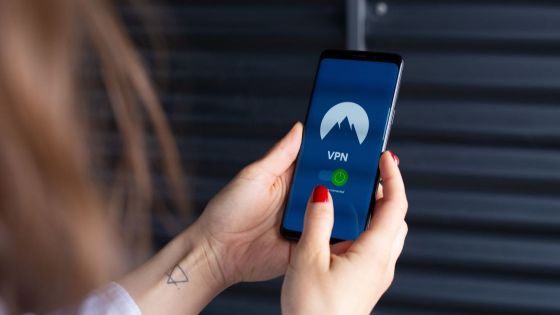Improve Your Online Privacy and Security Using VPN
As more services and businesses explore the digital space, security and privacy have grown to become some of the most important components of internet usage. At least 70% of the global population uses the internet every day. This has created a platform for scammers and hackers. The cases of data loss and identity theft are at an all-time high. To ensure you do not fall victim to hackers and scammers, you need to enhance your security when online.

A virtual private network, VPN, is a security service that allows you to communicate safely through the internet. With a VPN, you can safely and privately communicate over a public, unsecured, or unencrypted network. It establishes safe network connections to ensure hackers do not intercept your communication. It reroutes data from your computer through several servers before sending it to the recipient’s location. It also scrambles the data and makes it unreadable. Here is everything you need to know regarding VPN for multiple devices.
Why you need a VPN
Regardless of where you use your internet device, you are always at risk of a data breach. Unencrypted data is easy prey for hackers and exposes you to all sorts of cyber-attacks. When your data is unencrypted, any information coming to your browser can be accessed by anyone with hacking skills.
Wireless connections like public access points are vulnerable to hackers who use computer programs to decode the data and make it readable. This is especially easy with free open Wi-Fi common in hotels, restaurants, and cafes. Hackers gain access to these public connections to spy, steal data, steal identity, and hijack your device.
When using a public connection, anyone within 300 feet can access your data from your device remotely if they have the right programs and tools. They can access every ounce of data on your networks, including the last comment you left on a friend’s post or your banking details from the last electronic payment you made.
The best protection to protect yourself and secure your data is ensuring you always use a VPN when online, especially when using a public network.
How VPNs work
As mentioned earlier, a VPN encrypts and scrambles data from your device when using an open public network. This makes it impossible for hackers to track or read the data or see what you are doing online.
A VPN creates a secure tunnel that prevents hackers, internet service providers, and snoopers from accessing your browsing history, messages, downloads, banking info, or anything you access online through an open network. This tunnel cannot be accessed, making all your communication secure.
With a VPN connection, even public connections are made private to allow you to surf without worrying about the possibility of a data breach. You can use it on a desktop computer or any mobile device. This ensures you are secure no matter where you are.
With a VPN, your data is safe. This includes email communications, messages, login details, and your browser history. It works to alter the IP address to make it untraceable to hackers and online lurkers. This makes it difficult for anyone snooping to tell where you are using your device, making it impossible to hack into the network.
VPN vs. Proxy
Most people confuse proxies with VPNs, but they are different even though they work in the same way. VPNs and proxies are meant to mask the IP address and manipulate browser history data. A proxy server works by offering anonymity when you are searching the internet. This makes it difficult for sites to identify your IP address or private data, including your location.
The main difference between proxies and VPNs is that proxies do not encrypt your data when online. This means that all the data you are receiving or sending can be stolen by anyone who manages to override the proxy. This makes proxies unsuitable for people using a public network since they still leave you exposed to hackers and sniffers.
This is why VPNs have grown in popularity and are preferred over proxies. It is the best choice if you use public networks during the day and want to keep your data private and secure.
If you must use a public connection, the best tips you can get is to invest in a reliable VPN. Ensure you turn on your VPN before joining a public network. When connecting to networks, ensure you connect to the right network. Most hackers will create duplicate networks similar in name with a network used by the public. They access your device as soon as you click to join the network.




